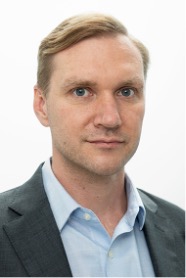Here you can find detailed profiles of DKTK faculty members with programm specification and research focus in the Researcher Database. Find contacts of all DKTK scientists at the DKTK intranet
Researcher Database

Prof. Dr. Jan-Henning Klusmann
Department of Pediatrics
Theodor-Stern-Kai 7
60590 Frankfurt am Main
Program
Exploitation of Oncogenic Mechanisms (EOM)
Summary
The research group at the Department of Pediatric Hematology and Oncology, Goethe University Frankfurt has been focusing on molecular and translational studies on acute myeloid leukemia especially in infants. Using one of the largest collection of pediatric AML specimen worldwide within the AML-BFM study group, they combine state-of-the-art omics profiling (including whole genome sequencing, global mRNA and ncRNA expression profiling) with functional analyses and disease modeling in primary human cells.
This allowed to identify several non-coding RNAs as central regulators of hematopoiesis and leukemogenesis. By applying genome editing, they elucidate the molecular processes induced by numerous known mutations that his research group and others identified in leukemia genomes. This has enabled new understanding of leukemic transformation in children with Down syndrome and chromosomal rearrangements in pediatric leukemia. Beyond genetic mutations, they mapped transcriptional landscapes of leukemia and normal hematopoiesis, providing further insights into the cellular networks hijacked by this disease. These insights guide hypothesis-driven genetic and pharmacologic testing of therapeutic vulnerabilities in patient-derived xenografts.
For more information, please click here.